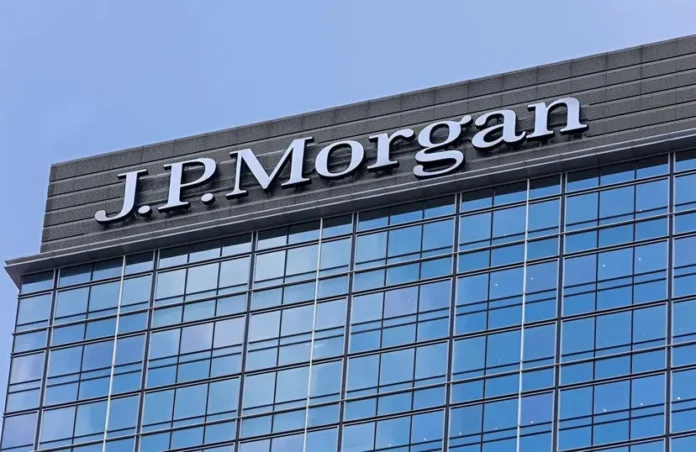JPMorgan Chase will begin charging fintech intermediaries for data access as early as October, citing strain on the system from 1.89 billion monthly requests that primarily serve non-customer purposes. The largest bank in the U.S. disclosed that only 13 percent of data scrapes from aggregators like Plaid actually came from customer-initiated trades in June.
What you need to know:
- In June, JPMorgan received 1.89 billion data requests, 87% of which were not related to client transactions.
- The bank plans to introduce new fees from October that could cost Plaid up to $300 million a year.
- Fraud claims for transactions involving aggregators are 69% higher than traditional banking channels.
Load on systems and introduction of fees
An internal JPMorgan memo reveals the scale of what executives describe as unnecessary taxation of the system. “Aggregators access customer data multiple times a day, even when the customer is not using the app,” an employee wrote to retail payments chief Melissa Feldsher. The memo describes these requests as “heavily taxing our systems.”
The bank’s data shows that API call volumes have doubled in more than two years. Among the 13 companies tracked, a single aggregator generated 1.08 billion requests in June alone. Sources familiar with the matter identified that company as Plaid, whose customer-initiated calls accounted for just 6 percent of total activity.
Talks between JPMorgan and fintech intermediaries are ongoing ahead of a targeted rollout in October. The proposed fee structure could fundamentally change the economics of an ecosystem that has relied on free access to data for years.
Policy changes due to fraud risks
JPMorgan’s internal analysis links aggregator participation to increased fraud risk. ACH transactions processed through data brokers show a 69 percent higher fraud claim rate than direct banking channels. The bank absorbed about $50 million in fraud claims through aggregators, with projections that the amount could triple within five years.
These financial losses are compounded by infrastructure costs as JPMorgan maintains systems that process billions of monthly data requests.
The bank argues that current agreements unfairly burden traditional institutions, while aggregators monetize connection services.
The timing coincides with legal challenges to regulations passed in the Biden era. The Consumer Financial Protection Bureau’s rule requiring free access to data is facing industry litigation, with the CFPB filing motions in support of the banking industry’s challenges in May.
Industry response and competition issues
Plaid disputes JPMorgan’s characterization of its data usage patterns. The company says all activity comes from a customer’s login when they set up an account, even though many users rarely read the lengthy agreements that outline the terms of their data sharing.
“Querying a bank’s API when a user is not present after a connection has been authorized is standard practice supported by all major banks,” Plaid said. The company provides key services including overdraft alerts and suspicious activity monitoring that require constant access to data.
Venture capitalists and fintech executives have criticized JPMorgan’s approach as anticompetitive rent-seeking behavior. They argue that paywalls limit innovation and consumer access to financial services enabled by open data sharing.
Transformation of the Fintech Ecosystem
The introduction of fees could change the dynamics of the fintech industry, which has thrived on a model of free access to data. Aggregators have built profitable businesses connecting traditional banks with new financial apps that offer fee-free services. Many of these arrangements may not be economically viable under a fee-based access structure.
JPMorgan executives point to productive discussions with several aggregators willing to change their data collection practices.
“Both sides fully acknowledge that there are things they could change to optimize call volume,” said one person familiar with the talks.
The bank’s stance reflects broader industry tensions as traditional institutions adapt to the demands of digital transformation. Chief Executive Jamie Dimon has previously called on bankers to “fight back” against regulations he has described as unfair to established incumbents.
Impact on the market and the future
The remaining companies in JPMorgan’s data represent significantly smaller operations. Only four other intermediaries logged more than 100 million monthly API calls, suggesting that Plaid’s dominant market position makes it particularly vulnerable to the introduction of fees.
Forbes reported that the proposed fee schedules could result in $300 million in annual costs for Plaid. Such costs would likely force adjustments to business models across the aggregator ecosystem.
The legal settlement of open banking regulations will determine whether data access fees become an industry standard. Courts may decide the balance between promoting innovation and distributing infrastructure costs in modern banking systems.
Final thoughts
JPMorgan’s levy represents a fundamental shift in the economics of the fintech industry, potentially ending years of free access to data that has fueled the ecosystem’s rapid growth. The outcome of ongoing negotiations and legal challenges will determine whether other major banks follow similar approaches, transforming the competitive landscape for fintech companies.

